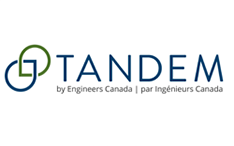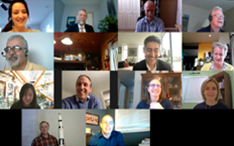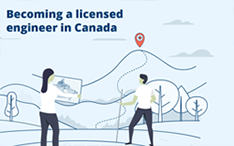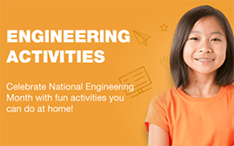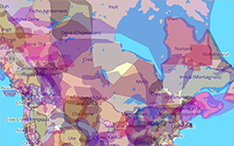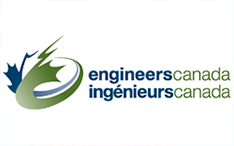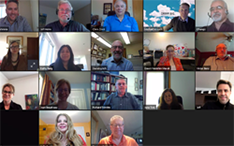President's message

2020 was a year of great change and transformation. Challenges presented by the COVID-19 pandemic ignited a shift in the way we interact, live our lives, and conduct business. Health measures led to the transition of all face-to-face Engineers Canada operations to online, and reshaped how we deliver our services and carry out our core activities. In an extremely fluid environment, the road ahead was uncertain, and yet, we made significant strides in 2020. In the second year of Engineers Canada Strategic Plan 2019-2021, a great deal of progress was made to drive our strategic goals forward.
2020 saw a sharpening focus on refining the accreditation program, a core activity of Engineers Canada. As we continue to improve the transparency and effectiveness of the accreditation system, the Accountability in Accreditation annual evaluation framework was officially launched. This unique framework operationalizes part of our current strategic plan and will help to monitor and improve the accreditation process. Alongside the work guided by our strategic plan, some additional accreditation activities undertaken in 2020 reflected the changes that surrounded us. Challenged by the impacts of COVID-19, the accreditation program shifted focus to support the move to virtual delivery of engineering undergraduate programs by our higher education institutions (HEIs). This included the extension of all accreditation periods by one year, a move to virtual visits for new programs only, the development of processes for virtual accreditation visits, and the start of a working group on “student learning experiences in the age of COVID-19”.
2020 was also marked by global change on the equity, diversity and inclusion (EDI) front. In our continued effort to embrace all aspects of EDI in the engineering profession, key advances were made in 2020. This included our submission to the federal government’s House of Commons Standing Committee on the Status of Women on the “Impacts of the COVID-19 Pandemic on Women”, the development of our “Changing the Culture for Engineering Employers” guide, internal training on Indigenous history and experiences, the development of a “Guide to Acknowledging First People and Traditional Land”, as well as networking and collaborating with the Indigenous community.
In the midst of a changing environment, the attention to our mission remained focussed. A primary reason that Engineers Canada exists is to support consistent high standards in the regulation of engineering. Within the last year, we saw an increased adoption of the online competency-based assessment among regulators across Canada. The implementation of this system carves a path toward a more consistent and efficient way of measuring a candidate’s readiness for licensure as an engineer.
In an effort to encourage more young people across Canada to consider a career in engineering, our promotion and outreach activities went completely virtual for the first time. Engineers Canada worked collaboratively with engineering regulators from coast-to-coast-to-coast to continue the delivery of National Engineering Month and the Future City program through a successful social media campaign and virtual activities.
The COVID-19 pandemic drove significant changes, not only for the world around us, but also for how Engineers Canada serves as a progressive force in engineering. Challenges met this year created new opportunities and I am proud of Engineers Canada’s successes in adapting to the rapid changes. While further uncertainty lies ahead, 2021 also brings new opportunities to continue to promote and enhance the engineering profession with an agile edge.
Sincerely,
Jean Boudreau, FEC, P.Eng.
President, Engineers Canada
Strategic priority 1: Accreditation Improvement Program
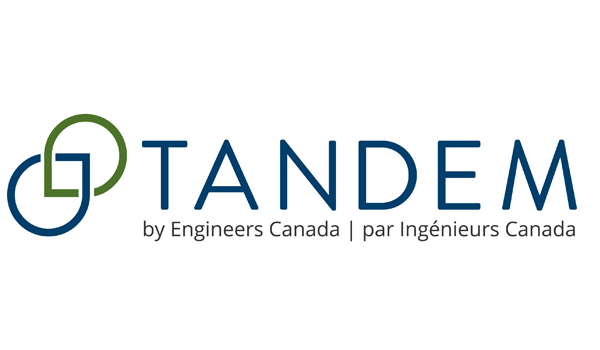
The Accreditation Improvement Program (AIP) is a coordinated effort to improve the delivery of accreditation for undergraduate engineering programs and of the annual Enrolment and Degrees Awarded Survey. The AIP reached several key milestones during 2020.
One of the main objectives of the AIP is to improve performance of the annual Enrolment and Degrees Awarded Survey process. Following the first delivery of the survey using our new data management tool for accreditation, Tandem, in 2019, we made improvements to the survey based on feedback from users and Engineering Deans Canada. Overall, the feedback received was positive, with several improvements identified with regard to the survey content and instructions. These were implemented in the 2020 survey.
We also continued work to configure Tandem for the accreditation process. Our project team and the AIP System Advisory Committee explored options to configure the system to capture data from programs demonstrating compliance with the CEAB accreditation criteria. This work will reduce duplicate data entry and improve user experience as we move away from a complex macro-enabled Excel-based tool toward a more integrated, user-friendly platform. Our work this year moves us closer to decommissioning our aging accreditation volunteer database, leveraging collaboration tools for accreditation visiting teams to write their reports, and centralizing accreditation decision data for analysis.
Finally, the continual improvement process was successfully operationalized and is being managed by the accreditation team. This repeatable process provides a framework for identifying, prioritizing, and responding to feedback from accreditation stakeholders and Enrolment and Degrees Awarded Survey respondents. The process is a cornerstone of the Accreditation Improvement Program and is key to ensuring the long-term success of the Program beyond 2020.
Strategic priority 2: Accountability in Accreditation

Accountability in Accreditation is a unique Engineers Canada program designed to continually improve the transparency and effectiveness of the accreditation system. In recent years, the Board, regulators, and HEIs have called for greater transparency from the Canadian Engineering Accreditation Board (CEAB). As a result, Accountability in Accreditation was established as a strategic priority in the Engineers Canada 2019-2021 Strategic Plan.
In keeping with the direction of the strategic plan, the CEAB approved and implemented the Accountability in Accreditation Evaluation Strategy in June. Through this strategy, the CEAB will annually assess the effectiveness, trustworthiness, transparency, and efficiency of the accreditation process.
The cycle for the data collection, analysis, and reporting processes follows an overlapping 16-month timeline that encompasses data collection, analysis, and reporting from all stakeholders. The first annual measurement kicked-off in June, and will conclude with the first report communicated in Fall 2021, reflecting data collected from the Board, regulators, the Accreditation Board and staff, HEIs, visiting team members, and students.
Finally, the issue of required number of AUs was successfully addressed. After extensive research and collaboration, the Engineers Canada Board reduced the minimum required accreditation units of a program from 1,950 to 1,850. While the total requirement was reduced, requirements for specific curriculum components (including those in mathematics, natural sciences, complementary studies, engineering science, and engineering design) remain unchanged.
Strategic priority 3: Recruitment, Retention, and Professional Development of Women in the Profession
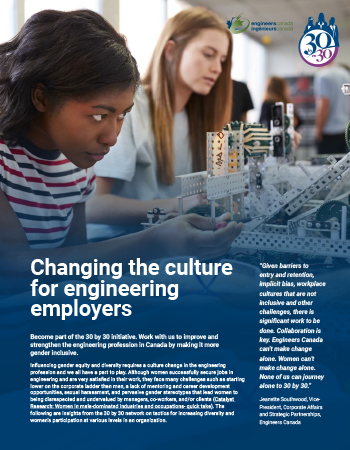
Through the 30 by 30 initiative, Engineers Canada aims to increase the the percentage of newly licensed engineers who are women to 30 percent by 2030. In collaboration with the regulators, post-secondary institutions, and employers, best practices, resources and research on women in engineering were created in 2020. Data provided by the regulators in the 2020 Membership Report, which covers the 2019 calendar year, indicates that the representation of engineering members who are women has increased from 13.5 per cent to 14 per cent since the previous year, and the number of engineers-in-training (EITs) who are women increased by 1 per cent to 22 per cent. Overall, 17.9 per cent of newly licensed engineers were women. There is still a great deal of work to do to address the lower representation of women and the 30 by 30 Champions network has continued to deepen its understanding of the barriers to success and how to overcome them.
Despite the impacts of COVID-19, the 30 by 30 initiative took several steps to increase equity, diversity and inclusion of women in engineering. Throughout 2020, Engineers Canada continued to convene the 30 by 30 Champions in quarterly virtual meetings for the four working groups: K-12, Post-Secondary, Early Career, and Industry. The working groups discussed strategies for increasing member and student engagement during the pandemic, online resources for women, and recent data on women in engineering.
Working with the 30 by 30 K-12 Working Group, we published a guide to assist engineering outreach programs address gender stereotypes, promote the engineering profession, and embed equity and inclusion throughout their work. The 30 by 30 K-12 Outreach Guide is intended for programs that offer engineering outreach activities to children and youth, of any gender, from kindergarten through high school.
Understanding that engineering employers play a vital role in influencing the recruitment, retention, and professional development of women, we developed the Changing the Culture for Engineering Employers guide.
In collaboration with the regulators, we conducted a gender-based analysis (GBA+) of national engineering licensure assistance and employer awareness programs and published the report in early 2021. As part of this report, we developed a 30 by 30 scorecard to increase the metrics being tracked and provided a framework for setting targets towards 30 by 30 with the regulators. June 23, 2020 marked the annual International Women in Engineering Day (INWED), a day to celebrate the work of women in engineering around the world.
In addition, the theme of INWED 2020, #ShapeTheWorld, provided an opportunity to highlight the important contributions that women make in their communities through their engineering work. With that, we spotlighted women in engineering who shared their stories on how they have marshalled their skills and resources to help overcomes the challenges of COVID-19.
Strategic priority 4: Competency-Based Assessment project

In the strategic plan, the Engineers Canada Board indicated its continuing prioritization to support a national online system that will provide competency-based assessments for candidates seeking licensure as engineers. In 2020, this priority saw notable advances on the path to a transparent and standardized method of assessing engineering experience.
Since 2017, Engineers Canada has been working with Engineers and Geoscientists British Columbia to make their online system available to engineering regulators across Canada. In 2020, the Competency-Based Assessment System was launched, and fully adopted by three regulators: Engineers and Geoscientists BC, the Association of Professional Engineers and Geoscientists of Saskatchewan (APEGS), and Engineers PEI. Three additional regulators have already transitioned or are anticipating to complete their transition in 2021: Engineers and Geoscientists New Brunswick (APEGNB), Professional Engineers and Geoscientists Newfoundland and Labrador (PEGNL), and Engineers Geoscientists Manitoba.
At the end of November, the Canadian environment experience competencies were completed and implemented within the system. Admissions officials across the 12 regulators identified eight of the 34 competencies that must be achieved within Canada or “equivalent” to Canada to ensure sufficient knowledge on Canadian laws, practices, standards, codes, conditions, and climate. These competencies were included as a replacement for the strict local and time-bound experience requirement that various human rights and fairness commissioners have found to be an unfair barrier to licensure. These Canadian competencies are now available to all regulators who are using the online system. Applicants who are unable to sufficiently demonstrate their achievement of the Canadian competencies can be supported by the Working in Canada seminar, developed by Engineers and Geoscientists BC. The seminar provides instruction and an ability to test the user’s general understanding of these competencies.
Operational imperative 1: Accreditation

The accreditation of undergraduate engineering programs promotes and encourages high standards in engineering education and ensures engineering graduates meet the academic requirements necessary for licensure.
In 2020, the accreditation system was met with challenges imposed by the COVID-19 pandemic. Government directives on physical distancing and limiting travel restrictions contributed to the deferral of most 2020/2021 accreditation visits by one year and the granting of a one-year accreditation cycle extension to all programs. Visits to new programs graduating their first cohort of students in 2021 transitioned from an in-person visit to a virtual one. To support this pivot, the CEAB Task Force on Virtual Visits was struck to plan the 2020/2021 virtual visits, develop the parameters for a proof-of-concept project to facilitate virtual visits, undertake an analysis of the virtual visits, and document best practices and lessons learned. This work resulted in the Guide for the Virtual Evaluation of an Engineering Program, an approach to how the on-site visit component of an accreditation review could be conducted virtually. The guide served as a starting point to help programs prepare for their review and to provide the visiting team with the necessary data to complete their evaluation.
In addition to the CEAB Task Force on Virtual Visits, the impacts of the COVID-19 pandemic led to the creation of several working groups which saw notable advances in 2020. The Working Group on Student Learning Experiences in the Age of COVID-19 was formed to study how measures taken by programs to respond to the pandemic are supported by the accreditation criteria. Additionally, the Required Visit Materials Working Group conducted a holistic review of all documentation submitted by a program to the visiting team. This work responds to feedback from HEIs who note the significant work effort to collect and present the materials, as well as from visiting team members who require information in order to adequately assess the curriculum content and quality. A working group was also established to investigate appropriate ways within the accreditation process to incorporate the goals of the 30 by 30 initiative.
In 2021, the CEAB will conclude the work of these groups by considering their final reports and recommendations. The CEAB continues to monitor the short, medium, and long-term impacts of the pandemic on undergraduate engineering education in Canada and on the accreditation system.
Operational imperative 2: Regulator relationships

Facilitating and fostering working relationships between and among the regulators is the core of our work. Through our existing programs, we work to encourage collaboration among the regulators and strengthen the profession through the sharing of ideas and best practices. We also offer direct support to facilitate communication among regulators to ensure the greatest degree of alignment possible.
COVID-19 forced the cancellation of in-person meetings. Even so, regulators remained collaborative and connected through virtual meetings, including the CEO Group, the National Admissions Officials Group, the National Discipline and Enforcement Officials Group, and the National Practice Officials group.
Given that 2020 was a year of shifts, much of the exchanges that took place were driven by a need to adapt to the changes. The Discipline and Enforcement Officials Group had some key discussions related to how to transition to remote investigations and virtual/semi-virtual discipline hearings in response to the ongoing pandemic and associated restrictions. Similarly, the National Admissions Officials Group discussed response tactics to the admissions-related complications that have arisen from COVID-19. This included being unable to access applicant mail and the transition of students to more distance learning. Additionally in 2020, the Finance Officials Group was formed. The purpose of the group is to provide an opportunity for the Senior Staff Officers of all the associations to exchange information on issues, advance initiatives of common interest, and share promising practices.
To improve the onboarding process for newcomers to our Board and committees, first-timer orientation sessions were provided for new presidents and CEOs, with sessions hosted in-person in February and virtually in October.
Operational imperative 3: Services and tools
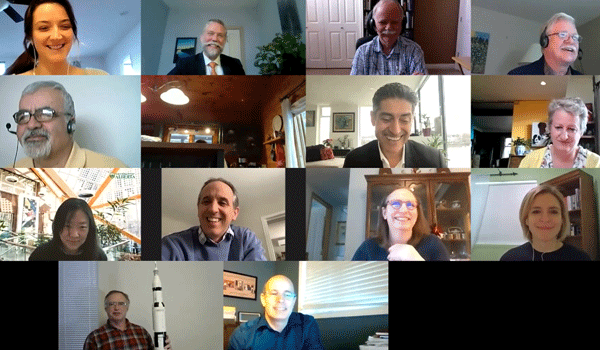
Engineers Canada develops and maintains work products that serve the needs of regulators and of practicing engineers. This includes guidelines for regulators and the public, Engineers Canada papers, examination syllabi, and the National Membership Database. These resources enable the assessment of engineering qualifications, foster excellence in engineering practice and regulation, and facilitate mobility of practitioners in Canada.
In keeping with previous years, 2020 saw the review, revision, and creation of a variety of resources by the Canadian Engineering Qualifications Board (CEQB), including:
- A revised guideline on risk management
- New regulator guideline on the assessment of engineering work experience
- Completion of the syllabi for basic studies, and biomedical/biochemic engineering
- Completion of the regulators guideline for the engineer-in-training program
- Work on a new guideline on diversity and inclusion
- Work on a new syllabus for aerospace and aeronautical engineering
- Review of the syllabi for software and computer engineering
- Review of a paper on software engineering
Among the enhancements and developments of these documents, was the completion of a guideline for the engineer-in-training program. The new guideline aims to help ensure the development of the engineer-in-training from an engineering graduate to a fully qualified engineer who is technically and professionally capable of assuming responsibility for the practice of engineering.
Over 2020, the groundwork was laid to rebuild the National Membership Database in 2021-2022. This included defining business requirements, designing an extensive bidder selection process, and releasing an RFP for the work. Over the next year and a half, the tool will be redeveloped with the goals of:
- Improving the user experience for regulator staff
- Simplifying mobility applicant transfers
- Ensuring regulators have control of their own data
- Improving consistency of verified information
- Ensuring information in the NMDB is reflective of what is needed by regulators in the mobility admissions process
- Minimizing the Engineers Canada staff time required to maintain database
Operational imperative 4: National programs

Insurance, financial services, and other benefits for engineers
Engineer Canada delivers a number of national programs that are intended to benefit engineering regulators and their members. This is done through sponsored initiatives and partnerships, also known as affinity programs.
Engineers Canada’s affinity partners responded quickly as COVID-19 unfolded, implementing added-value measures to the insured engineers and geoscientists such as payment and rate relief, and temporary coverage adjustments. As corporations, our partners supported charities and front-line workers.
At the beginning of 2020, we launched the second iteration of a successful social media awareness campaign for the Secondary Professional Liability Insurance Program (SPLIP). This program provides engineers with personal protection for professional services. Using Twitter and Facebook, the campaign increased traffic to the Engineers Canada website and drove over 1,000 viewers to the SPLIP pages. Later in the year, we carried out an additional campaign that saw visitors spend more time on the pages than in the previous campaign.
Professional Geoscientists Ontario joined the Engineers Canada sponsored home and auto insurance program. In addition, clients in the TD Insurance home and auto program will benefit from an increase in the number of TD Insurance Auto Centres, now totalling 20 Canada-wide. These centres are the only one-stop shops in Canada where clients can speak to a claims advisor, get their car repaired, and borrow a rental car. TD Insurance continued to develop its online capabilities, providing customers with several self-serve options, including an expanded My Insurance online portal, the ability to purchase insurance online, and click-to-chat functionality to improve service levels.
In collaboration with Manulife, Engineers Canada provided access to a Health Care Online App (Akira) for the health and dental program insureds. Services include specialist referrals, lab test requisitions, diagnosis of health concerns, and prescriptions. The addition of this service is to help insured members during these COVID-19 times and is provided for at least one year.
The UPS Shipping and Freight program discount was increased to 50 per cent for all small package shipments.
Engineers Canada, in collaboration with Marsh and the regulators, engaged a new insurer, Victor Canada, for their Combined Errors and Omissions/Non-Profit Directors and Officers Insurance Program resulting in enhanced coverage and premium reductions.
In collaboration with Marsh, Engineers Canada and the regulators selected CFC Underwriting as the insurer to meet their corporate cyber insurance needs.
Finally, in consultation with the Affinity Advisory Committee and discussions with the participating regulators in the National Employee Group Benefits Program, Engineers Canada directed Manulife to provide three months of premium relief to participating organizations in the program, as well as implementing Manulife’s (in partnership with Akira) Virtual Health Care product, “Health Care Online”. This was possible using monies from the Program’s Unrestricted Deposit Account.
PIEVC
In alignment with the 2019-2021 strategic plan, Engineers Canada signed a divestment agreement between Engineers Canada and the Institute for Catastrophic Loss Reduction (ICLR) to assume ownership of the Public Infrastructure Engineering Vulnerability Committee (PIEVC) program and protocol. Engineers Canada took the decision to divest the PIEVC Program to an entity that could ensure it continues to receive the attention and investments it needs to effectively serve private industry, Indigenous communities, and all levels of government as well as interested parties outside of Canada. Engineers Canada is confident that the ICLR will ensure that the program thrives in the years ahead.
IRP program
As part of the 2019-2021 strategic plan, Engineers Canada also signed a divestment agreement between Engineers Canada and the Climate Risk Institute to transfer ownership of the Infrastructure Resilience Professional (IRP) Program to the Climate Risk Institute. The IRP Program has been designed to help engineers strengthen the knowledge and competencies they require to advance more climate-resilient approaches for the planning, design, and management of infrastructure. Engineers Canada took the decision to divest the IRP Program to an entity that would commit to the full suite of courses and a robust credentialing program.
Operational imperative 5: Advocating to the federal government
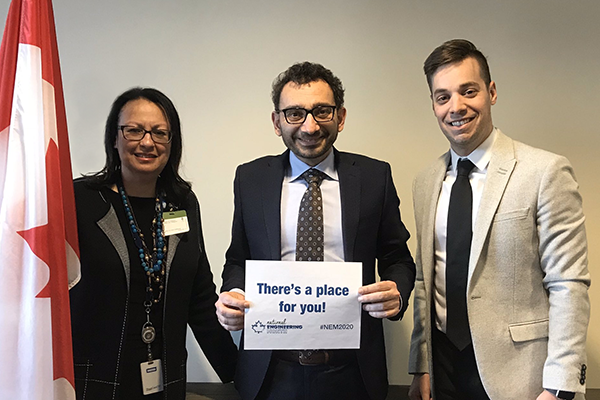
Engineers Canada brings the voice of the engineering profession to the federal government. Our advocacy work is centered around policy issues and the development of legislation and regulation relevant to public safety and engineering.
As the world faced the pervasive impacts of COVID-19, Engineers Canada shifted focus to address these challenges. We provided comments and recommendations to the House of Commons, Senate, and the federal public service on topics relating to the Canadian response to the COVID-19 pandemic, the impacts of the COVID-19 pandemic on women, amendments to the wastewater systems effluent regulations, engineering positions within the public service, the 2021 federal budget, the draft National Climate Change Science Knowledge Plan, and Canada’s building code in the context of climate change, adaptation, and sustainability. Additionally, we published a new National Position Statement (NPS) on professional practice in cyber security and an issue statement on engineers’ role in Canada’s long-term economic recovery post-COVID-19.
In response to the various effects of COVID-19, eight existing NPSs that covered issues of concern for the engineering regulators and the engineering profession were updated. They included updates to our positions regarding: diversity, equity, and inclusion; national and international labour mobility; demand-side legislation; regulating the profession in federally regulated industries; infrastructure; infrastructure on Indigenous reserves and in remote communities; and climate change and extreme weather events. Engineers Canada also met with Members of Parliament and senior federal officials to discuss issues of concern for the regulators and for the engineering profession. These included meetings with Marilyn Gladu, Chair of the Standing Committee on the Status of Women, Stephanie Kusie, Shadow Minister of Transport, and Omar Alghabra, Parliament Secretary to the Prime Minister and to the Deputy Prime Minister and Minister of Intergovernmental Affairs.
Operational imperative 6: Monitoring, researching, and advising

Engineers Canada has a role to play in proactively identifying, investigating, and explaining trends and changes that are likely to have an impact on the engineering regulators and on the engineering profession. This information must be communicated to the regulators on an ongoing basis as an input to their own decision-making and direction-setting.
In 2020, the Engineers Canada Board approved a sub-strategy on regulatory research. This sub-strategy has two main activities intended to help inform regulators’ decision-making:
- Producing detailed research reports on selected topics related to how regulators fulfill their responsibilities and where the profession is changing.
- Monitoring the environment for trends and insights that could impact the future of regulation and the profession.
Following the approval of the sub-strategy, regulators were consulted on a list of potential research topics to explore. Through consultation, three subjects were selected: entity regulation, non-practising status, and regulation of autonomous systems engineering. Additionally, three different advisory groups, made up of regulator staff and Service Matter Experts (SMEs), were formed to address these topics. Members of the groups help guide the development of the research papers by defining scope and key terms, reviewing materials, and providing feedback and direction. Research papers on each subject are underway and regulators will be consulted on this work throughout 2021.
In addition, 2020 saw the launch of a series of issues in regulation articles for the regulators and in Engineering Matters. These articles provide insight on trends and current affairs affecting regulated professions.
Operational imperative 7: International mobility
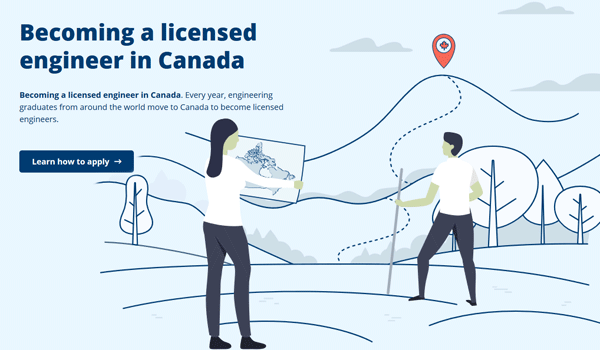
Engineers Canada supports regulators in defining the risks and opportunities associated with the mobility of work and practitioners internationally. Activities undertaken in 2020 furthered this effort.
A new sub-strategy was approved and an advisory group was struck to guide work with the International Engineering Alliance (IEA). The advisory group will help Canadian engineering regulators maintain a strong international reputation while recognizing and responding to the growing trends of professional mobility. A regular review of our status within the IEA took place in 2020, with questions about continuing professional development requirements and licensure assessments that are not competency-based. The issues were resolved during the IEA’s January 2021 meeting, and our membership was extended.
Enrolment on the Engineers Canada Mobility Register continues to grow, with engineers currently licensed in Canada applying to use the APEC Engineer and IntPE (Canada) designations. These designations signify that an engineer has met the standard of registration and is prepared to practise engineering internationally. They may also experience faster registration in some international jurisdictions. Over 250 engineers are listed on the register.
In addition, 2020 saw work towards completing the International Institutions and Degrees Database (IIDD). The new IIDD is an information resource that will assist admissions officials in determining whether a degree is at the required level for entry into the profession in Canada. It will include information about:
- The educational system and its link to the practice of engineering and licensure/registration (where applicable) in countries across the world
- Competent authorities
- Degree classification by the International Standard Classification of Education (ISCED)
- Quality assurance systems
- Diploma mills
The new system will also provide the ability to request new users, submit requests for Engineers Canada to perform research and create new entries in the system, and see research requests made by other users. The revamped system improves the overall user experience for regulators, is more stable, and is better suited for growth and expansion as regulator needs evolve. It is set to launch in March 2021.
Operational imperative 8: Promotion and outreach
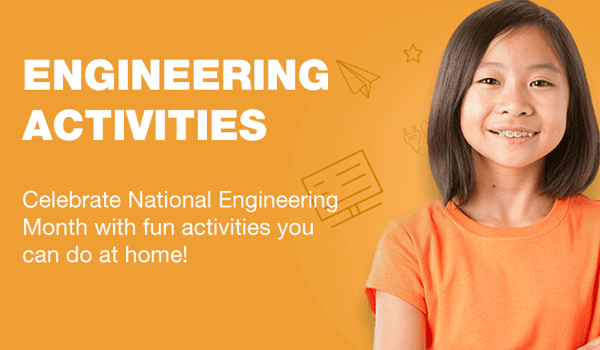
Engineers Canada works to foster recognition of the value of the profession and to spark the interest of the next generation of engineering professionals through various outreach initiatives. In 2020, the board approved the new OP8 sub-strategy. The strategy focuses on leveraging existing opportunities, programs, and partnerships as well as Engineers Canada’s unique ability to coordinate outreach initiatives on behalf of and in collaboration with the regulators. This sub-strategy was developed in collaboration and consultation with our provincial and territorial regulators and informed by research into current and future trends and best practices.
One of those initiatives include National Engineering Month (NEM), a nationwide celebration of the engineering profession which takes place annually in the month of March. In 2020, National Engineering Month (NEM), a nationwide celebration of the engineering profession which takes place annually in the month of March, went completely virtual. With that, Engineers Canada worked with the regulators to implement a user-generated social media campaign. The campaign was very successful, though short-lived when COVID-19 required a pivot to the NEM campaign.
Following the implementation of states of emergency, the NEM campaign re-focussed to support stay at home students, teachers, parents, and Girl Guide units through the promotion of online STEM activities that could be completed at home.
As part of our K-12 engagement, Engineers Canada delivers the Future City Program, a unique initiative that gives middle school students in the United States, Canada, and around the world an opportunity to do the things that engineers do best—identify problems, brainstorm ideas, design solutions, test, retest, and build, and share their results.
For the first time, the Future City program was offered entirely virtually in order to support in-class and at-home learning. Over 380 students from British Columbia, Prince Edward Island, and New Brunswick participated in the virtual competition with New Brunswick sending a virtual team to compete in the international virtual competition.
Engineers Canada also has a long-standing relationship with Girl Guides Canada, with the two organizations working together to spark girls’ interest in engineering through the Engineering Crest Program. In 2020, 1,145 crests were distributed to Girl Guides across Canada. This is lower than previously years due to the number of activities that Girl Guides across Canada were forced to cancel due to Covid-19.
As part of our engineering student development initiatives, we continued to support and partner with the Canadian Federation of Engineering Students (CFES). We signed an MOU with them and launched a mentorship program that pairs CFES student leaders with Engineers Canada staff members. We also continue to support CFES events and the Sustainability in Practice MOOC, offered in partnership with Polytechnique Montréal.
Finally, following consultation with regulator staff on Engineers Canada’s Outreach Engagement Strategy, and in response to lessons learned through the jointly administered National Engineering Month campaign, the NEM Advisory Committee was dissolved and replaced with two strategic engagement working groups: the Online Campaign Working Group and the Digital Engagement Working Group.
Awards and honours
The Engineers Canada Awards program recognizes and celebrates the achievements of engineers and engineering students who are advancing the engineering profession and improving the lives of Canadians and others around the world. The annual Awards Gala to honour the recipients was cancelled in 2020 as a result of COVID-19 disruptions.
Despite a sudden turn of events, the awards program saw key advances through a social media campaign, launched in June 2020. The campaign featured posts through Engineers Canada’s social media channels as well as those of the awards recipients, social media advertising, advertising on CBC’s digital platforms, as well as earned media outreach.
2020 also saw the completion of the review of Engineers Canada’s scholarship program. As a result of the review a new scholarship was created, targeting engineering undergraduate students who demonstrate leadership and resilience. This scholarship launched in the fall of 2020.
Engineers Canada Award recipients
Each year, Engineers Canada honours outstanding Canadian engineers, teams of engineers, engineering projects, engineering achievements, and engineering students through the annual Engineers Canada Awards program. Recipients in 2020 were:
- Cristina Amon, ScD., P.Eng. - Gold Medal Award
- Colin Smith, M.S., MBA, FEC, P.Eng. - Meritorious Service Award for Professional Service?
- Clayton Deutsch, PhD., P.Eng. - Medal for Distinction in Engineering Education
- SoundBite Vascular Recanalization Technology, SoundBite Medical Solutions Inc. - National Award for an Engineering Project or Achievement
- Megan Pate, P.Eng. - Young Engineer Achievement Award
- Nathalie Tufenkji, PhD., ing. - Award for the Support of Women in the Engineering Profession
- Russ Wlad, P.Eng. - Meritorious Service Award for Community Service
- Dolma Tsundu - Gold Medal Student Award
Engineers Canada Scholarships recipients
In partnership with Manulife and TD Insurance, Engineers Canada awards six cash prizes totalling $60,000 each year to professional engineers returning to university to further their studies. The recipients of the 2020 scholarships were:
Engineers Canada-TD Insurance Scholarships ($7,500)
- Gregory Bak, P.Eng
- Jacky Chow, PhD, MBA, P.Eng.
- John Desnoyers-Stewart, MFA, P.Eng.
Engineers Canada–Manulife Scholarships ($12,500)
- Amalia Gil, P.Eng.
- Kevin Wallin, P.Eng.
- Kiki Chan, M.A.Sc., P.Eng.
Fellows of Engineers Canada
Engineers Canada
Maria Arrieta, FEC (Hon.)
Association of Professional Engineers and Geoscientists of Alberta (APEGA)
Adria Coombs, FEC, P.Eng.
Alil Ostad-Aghaei, FEC, P.Eng.
Amy Wisniewski, FEC, P.Eng.
Clayton Deutsch, FEC, P.Eng.
Dean Mullin, FEC, P.Eng.
Frank Cavaliere, FEC, P.Eng.
Hasan Rizvi, FEC, P.Eng.
Jim McCuaig, FEC, P.Eng.
Kari Anderson, FEC, P.Eng.
Maria Estela Savala Mata, FEC, P.Eng.
Michael Cholach, FEC (Hon.)
Roya Iranitalab, FEC, P.Eng.
Russ Wlad, FEC, P.Eng.
Engineers Geoscientists Manitoba
Carolyn Geddert, FEC, P.Eng.
Grantley King, FEC, P.Eng.
Robert O’Toole, FEC, P.Eng.
Engineers PEI
Geoff Connolly, FEC, P.Eng.
Ordre des ingénieurs du Québec (OIQ)
Mohamed Cheriet,FIC, ing.
Denis Laurendeau, FEC, ing.
René Therrien, FEC, ing.
Robert Molenge, FIC, ing.
Professional Engineers and Geoscientists Newfoundland and Labrador (PEGNL)
Joanna Barnard, FEC, P.Eng.
David Goosney, FEC, P.eng.
Professional Engineers Ontario (PEO)
Cristina Amon, FEC, P.Eng.
Darlene Daigle, FEC, P.Eng.
Donald Ireland, FEC, P.Eng.
Gerald J. McGee, FEC, P.Eng.
Hafiz Bashir, FEC, P.Eng.
Ian Marsland, FEC, P.Eng.
Kaoru Yajima, FEC, P.Eng.
Karin Pratte, FEC, P.Eng.
Krzysztof Popiolek, FEC, P.Eng.
Linda Latham, FEC, P.Eng.
Maziyar Bolour, FEC, P.Eng.
Md Shah Alamgir, FEC, P.Eng.
Mohammad Khalid, FEC, P.Eng.
Pierre Legault, FEC, P.Eng.
Satyendrakumar Bhavsar, FEC, P.Eng.
Souheila Bardakji, FEC, P.Eng.
Stacey McGuire, FEC, P.Eng.
Vera Straka, FEC, P.Eng.
James Amson, FEC, P.Eng.
Operational imperative 9: Diversity and Inclusion
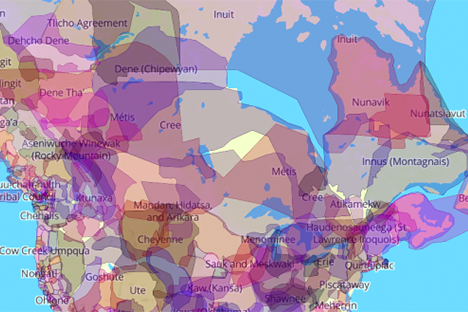
Engineers Canada is working to ensure that the engineering profession is reflective of Canadian demographics. In support of this goal, we develop programs and resources to increase the diversity of people within the profession. We focus primarily on increasing the recruitment, retention, and professional development of women and reducing barriers for Indigenous people to enter and thrive in the engineering profession.
Our newly formed Indigenous Advisory Committee (IAC) plays a significant role in guiding our work towards increasing Indigenous access to engineering. In 2020, the IAC provided advice on the creation of a resource for conducting traditional land acknowledgements, A Guide to Acknowledging First Peoples and Traditional Land. The group also contributed to research for our report on Indigenous Engineering in Canada. Future research in collaboration with the regulators is planned for 2021.
Inclusion begins with improving understanding and awareness from within the organization. To that end, Engineers Canada partnered with 4 Seasons of Reconciliation Education to provide training on the history and experiences of Indigenous people. Throughout 2020 and into 2021, training was provided to staff, Board, CEAB, CEQB, regulator CEOs and presidents, Engineering Deans Canada, and the Canadian Federation of Engineering Students.
Engineers Canada participated in and sponsored the annual American Indian Science and Engineering Society (AISES) in Canada National Gathering. We continue to participate in the Canadian Indigenous Advisory Council (CIAC) to AISES, and promote AISES to regulators, HEIs, and employers.
Throughout 2020, we convened monthly meetings of the Decolonizing and Indigenizing Engineering Education Network (DIEEN), which offers a community of practice to Indigenous and non-Indigenous faculty, students, researchers, and administrators associated with accredited engineering programs. Insights and best practices shared through the DIEEN contribute to the goal of understanding areas of improvement to create options for truth and reconciliation efforts to be incorporated into engineering undergraduate education in Canada.
Engineers Canada continues to network with other professional organizations (e.g. Canadian Society of Landscape Architects, Canadian Institute of Planners, Royal Architectural Institute Of Canada), to lay the groundwork for opening dialogue with national Indigenous organizations and collaborate on developing strategic partnerships.
Operational imperative 10: Protecting official marks
On behalf of the provincial engineering regulators, Engineers Canada holds and administers a portfolio of intellectual properties that includes official marks and registered trademarks, including registered certification marks. In 2020, we reviewed and evaluated Engineers Canada’s trademark enforcement strategy to ensure trademarks and official marks continue to be adequately used and protected.
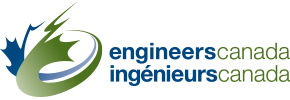
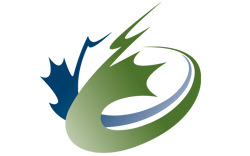
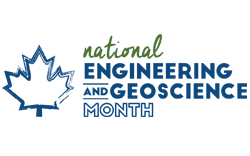
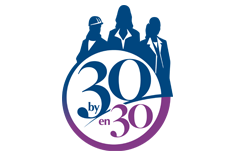
Engineers Canada is the owner of an official mark for each of the following professional engineering designations:
- ENGINEER
- ENGINEERING
- CONSULTING ENGINEER
- PROFESSIONAL ENGINEER
- P.ENG.
- GÉNIE
- INGÉNIERIE
- INGÉNIEUR CONSEIL
- INGÉNIEUR
- ING.
Working with the provincial and territorial regulators, Engineers Canada provided its consent to 50 requests in 2020 from applicants looking to register a federally incorporated company containing the official marks in their corporate name. Of these requests, one was from an applicant registering a non-profit organization.
Additionally, we closed nine trademark opposition files, six of which were abandoned and three settled. Engineers Canada commenced summary expungement proceedings in respect of 24 trademarks identified for potential expungement (for non-use). Twenty-one of the proceedings resulted in the trademark being expunged from the register. One mark was expunged during the proceeding for failure to renew.
Governance
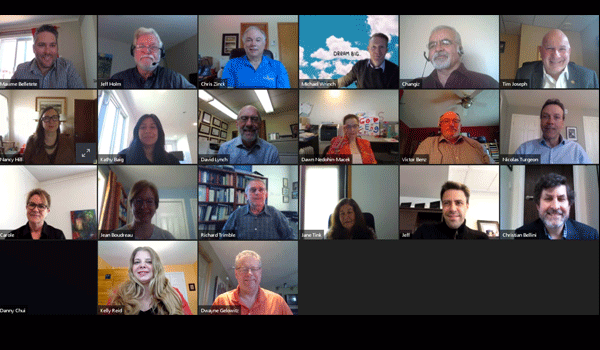
Under the Engineers Canada Strategic Plan 2019-2021, and according to board policy, there are six Board responsibilities, each of which was met in 2020 with the support of Engineers Canada Staff. They state that the Board shall:
- Hold itself, its directors, and its direct reports accountable.
- Sustain a process to engage with regulators through regular communication that facilitates input, evaluation, and feedback.
- Provide ongoing and appropriate strategic direction.
- Ensure the development and periodic review of Board policies.
- Ensure the CEO maintains and acts on a robust and effective risk management system which reflects the Board’s risk tolerance level and directs Board-approved mitigation strategies.
- Provide orientation of new directors, and continuing development of directors and others who work closely with the Board.
Highlights from this work in 2020 include: the inaugural Board, Director, and chair assessments; planning for online Director training to support needs identified in the Board self-assessment; implementing the 4 Seasons of Reconciliation Education focused on Indigenous awareness; delivering orientation sessions for new Directors; approving the CEO assessment recommendations; approving the 2021 consultation plan; hosting workshops and consultations to develop the 2022-2024 strategic plan, including the identification of related strategic risks; approving several sub-strategies defined under the current 2019-2021 strategic plan and monitoring of progress through quarterly reporting with an annual report delivered to Members; receiving quarterly risk register reporting; and approving 37 revised Board polices, one new policy, and one rescinded policy.
Financial Statements

